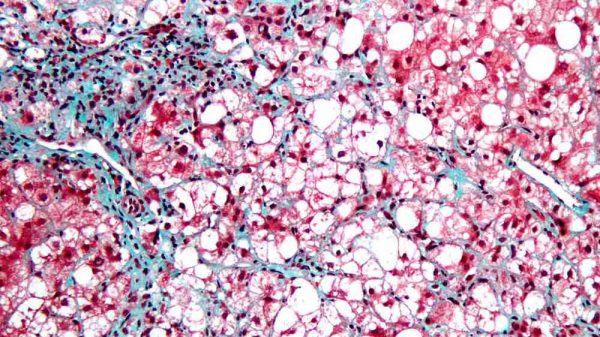Steve Jobs is, without a doubt, one of the most influential people of the entire century, if not of all time. He provided the world with the vision of producing quality products that can be used to make the lives of individuals more convenient due to technology and scientific advancement. We got the iPod, the iMac, and the iPhone- products that are undeniably etched in the consciousness of people across the globe. As such, the medical issues that rocked Steve Jobs up to the time he died from the complications caused by pancreatic cancer are common knowledge to most people. But what about the supposed liver transplant of Steve Jobs? Did it really happen? How did it affect the overall health of Steve Jobs? In this article, we attempt to answer these questions so read on and find out!
Complications: How it could have Affected Steve Jobs
Several possible health conditions may have adversely affected the CEO of Apple, Steve Jobs, when he frequently had to go on medical leave. To most people, it seemed like the pancreatic cancer of Jobs and his liver transplant may have taken its toll on the man and this was most probably exacerbated by the side effects of medications he was taking at the time. In 2009, Jobs reportedly accomplished a liver transplant at a hospital in Tennessee. During this period, the said surgical procedure seemed successful. While relatively common, though, these liver transplants can come with a slew of different complications and health risks which include the side effects of the drugs used as a form of immunosuppressant which helps the body in the prevention of the rejection of the newly transplanted organ (liver).
These transplants of the liver can be beneficial in addressing tumors caused by islet cell neuroendocrine- a form of cancer of the liver that was diagnosed for Steve Jobs. Due to the rarity of the aforementioned condition, there is limited data to points towards the success of the procedure in terms of preventing the recurrence of cancer. A study conducted in 2010 showed that patients who underwent the procedure had a good chance of survival within five (5) years from the transplant (around 36 to 80% of patients). However, research conducted in 2007 showed that only a small percentage of patients (around 20%) were free from any diseases after five (5) years.
Behind Closed Doors: Job’s Liver Transplant While Working at Apple
The tumor affecting jobs was removed via surgery in 2004 and at the start of 2009, he claimed that he was receiving treatment for what he called a “hormonal imbalance”. In the same year, Jobs went on a leave of absence that was medical related before returning to work in June of the same year. During the Job’s leave from work, the company said that he remained involved in the company’s key and major decisions. However, the routine operations were to be handled by Mr. Tim Cook, Apple’s Chief Operating Officer.
Steve Job’s leave duration was unspecified and further information on the matter was no longer discussed by an Apple representative but during this time people looked at what the possible side effects there are in terms of Job’s cancer diagnosis and liver transplant.
Liver Transplant: Possible Effects on Patients Such as Steve Jobs
In general, after a liver transplant, patients may experience several complications such as narrower bile duct also known as stenosis. In fact, stenosis can result in more anatomic complications. Patients can also experience immunologic complications which can lead to to the transplanted organ getting rejected. This case can be treated. On the other hand, a case of over-immunosuppression may most likely be caused by an infection of a virus.
Other complications that are malignant may also occur which is in Steve Job’s case, which would mean the tumor’s recurrence even after it has been treated and removed. This is because patients who are experiencing immunosuppression are more prone to the development of other tumors though new tumors may also form and develop. PTLD or post-transplant lymphoproliferative disease also has a specific form of tumor which is commonly addressed by having the immunosuppressants limited or decreased.
Liver Health and Pancreatic Cancer: Is there any link?
Medical experts call Steve Job’s illness like pancreatic cancer and they usually refer to a condition known as adenocarcinoma. This can be misleading as this is not the condition Jobs had. In addition, liver transplants are not recommended for patients suffering from the aforementioned condition. What Steve Jobs had was called an insulinoma, a form of neuroendocrine tumor. Based on the presentation and the biology, these tumors only metastasize within the liver itself which makes such health conditions (and patients like Steve Jobs) ideal for liver transplants. In short, jobs only had metastasis only in the liver and nowhere else which makes him suitable for a surgical procedure such as transplantation of the liver.
Details of the Liver Transplant
The doctor who performed the liver transplant of Steve Jobs is Dr. James Eason, a surgeon from Memphis. People asked the doctor himself why was Jobs granted the liver transplant so quickly and the answer was simple- based on the list, Jobs was the sickest patient. The procedure also drew some questions as to the appropriateness of the transactions between the good doctor and his patient, Steve Jobs. It seems like Dr. Eason was able to buy one of Job’s 13 room house at a bargain and by facilitating the payment for the said property through a shell company owned by Apple.
Regardless of the controversy, what remains is that the liver transplant did occur and while it took another two (2) and a half years for Jobs to pass away, the surgery provided some kind of hope for those around the Apple CEO.























